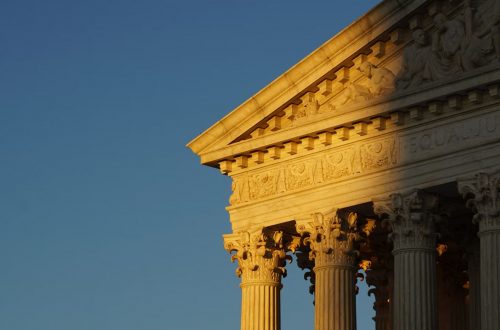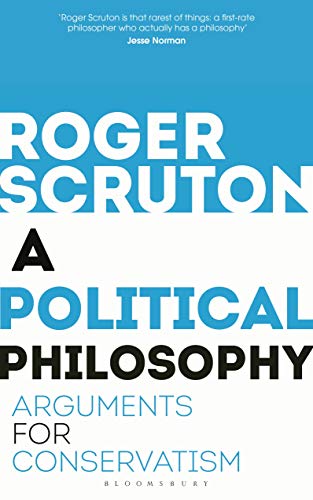Is the Apostle Paul anti-American? This is the question that I will be addressing in a paper that I am presenting this week at the 58th annual meeting of the Evangelical Theological Society (ETS) in Washington, D. C., the theme of which is “Christians in the Public Square.”
Theologues who are familiar with the latest fads in biblical interpretation are familiar with what is known as the “New Perspective” on Paul. There has been so much ink spilled over this way of reading Paul’s letters, that I hardly need to rehearse that discussion here. Needless to say, the theological implications of the “New Perspective” are still being hashed out by Evangelicals, and the debate is far from over.
What is not so well-known among Evangelical interpreters of scripture is a fledgling movement that N. T. Wright has dubbed a “Fresh Perspective” on Paul. The paper that I will be presenting on Friday will be a review and evaluation of this “Fresh Perspective” and whether or not it amounts to a theology of anti-Americanism. Thus my paper is titled, “The ‘Fresh Perspective’ on Paul: A Theology of Anti-Americanism.”
Over the next couple of days before I present my paper, I am going to introduce what this “Fresh Perspective” on Paul is and why it amounts to a theology of anti-Americanism. Today, however, I’m not going to define the “Fresh Perspective,” but I am going to preview some of the things that “Fresh Perspective” interpreters are saying about America. Here’s a sampling.
N. T. Wright, The Last Word, p. 13:
The Enlightenment failed to deliver the goods. People not only didn’t stop fighting one another, but the lands of the Enlightenment became themselves embroiled in internecine conflict, while “rational†solutions to perceived problems included such Enlightenment triumphs as the Gulag and the Holocaust. The greatest of the Enlightenment-based nations, the United States of America, has been left running a de facto empire which gets richer by the minute as much of the world remains poor and gets poorer.
N. T. Wright, “God, 9/11, the Tsunami, and the New Problem of Evilâ€:
The reaction in America and Britain to the events of September 11 has been a knee-jerk, unthinking, immature lashing out. Don’t misunderstand me. The terrorist actions of al-Qaeda were and are unmitigatedly evil. But the astonishing naivety which decreed that America as a whole was a pure, innocent victim, so that the world could be neatly divided up into evil people (particularly Arabs) and good people (particularly Americans and Israelis), and that the latter had a responsibility now to punish the former, and that this justified the wars in Afghanistan and Iraq, is a large-scale example of what I’m talking about
Richard Horsley, Jesus and Empire: The New World Disorder, p. 5:
More generally, the United States consumes a huge percentage of the world’s resources, including fossil fuels for SUV’s, and then refuses to go along with the Kyoto treaty to slow down global warming that threatens life on the planet. Now global capitalism, which is not identical with but is centered in the United States, effectively controls the economy of nearly every country in the world, to many peoples’ detriment. Even if one believes that the power that really controls the world is now global capitalism, it appears that in the twentieth century the United States became the heir of the world empire and now, as the only remaining superpower, indeed stands at the apex of a new world order. . .
The United States would have a hard time convincing the world that it is still practicing republican virtue. Given the United States’ behavior in the world, it would be difficult for Americans to claim that they are still a biblical people who hold liberation and covenantal justice as core values and commitments. Indeed, many Americans cannot avoid the awkward feeling that they are now more analogous to imperial Rome than they are to the ancient Middle Eastern people who celebrated their origins in God’s liberation from harsh service to a foreign ruler . . .
Come back tomorrow to find out why these interpreters think that the apostle Paul leads them to such an antagonistic posture towards the United States.




6 Comments
Matt Stokes
I enjoy a good bit of Wright’s work, but there’s really no place for this sort of talk.
Paul
Denny,
While I see criticism of the United States in those snippets, I do not see anti-Americanism.
N.T. Wright is absolutely right at least once. How many times did we hear, “they hate us for our freedom!” which has got to go down as one of the dumbest quotes ever uttered on our shores. We’re pure, and the rest of the world, particularly France and most of the Arab world, are evil.
And Richard Horsley seems to be on the money too.
Denny, one can criticize us without hating us. It’s true. Don’t fall into the traps that C.S. Lewis writes about in the screwtape letters.
Looking forward to the rest of this,
Paul
Debbie
Who do you think the author of Hebrews is? Dr Streett says it’s Luke.
Steve Hayes
It’s hard for me to see Paul, in this culture, liking what he sees. I think Paul would judge the current status of the US pretty harshly. Why would we or should we expect Paul to be pro-American? I think Paul was pro-Gospel, but I don’t see him supporting any kind of nationalism.
Nancy
Hmmm…perhaps a little geography is in order. President Bush said the axis of evil was Iraq, Iran and N. Korea…are not those states arab, Persian and Asian?
Okay, so the US consumes 20 M barrells/day of oil (about 25% of the world total) while producing 33% of the goods (can’t remember where I picked up this last stat, so it could be off).
I look forward to tuning in to this series!
Noah
Denny,
I am a big admirer of Wright’s writings, but I was disturbed after reading his recent lecture “Where is God in ‘the war on terror'” You can find the post here,/a>. I am also reading his new book “Evil and the Justice of God” which contains very similar rhetoric. I look forward to this series. I also posted notice of it on my other blog ntwrites.com. -Noah